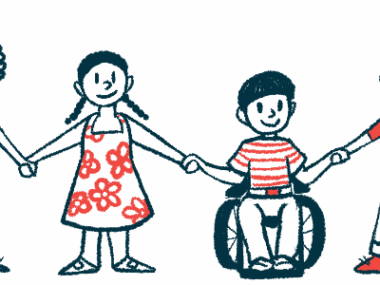Don’t underestimate the importance of routines in life with SMA
They may seem like small details, but they make a world of difference
Written by |

Every morning, my dog, Stella, impatiently waits for me to wake up. While it’s true that she loves me, it’s also true that she’s excited about the treat I give her after she greets me with slobbery kisses.
Rewarding her with a treat is a routine I unintentionally started long ago, and Stella picked up on it rather quickly. Though I didn’t intend to start this behavior, I’m unsurprised. Routines are a big part of my life, not only for small moments like giving my dog her morning treat, but also for the bigger picture.
While living with spinal muscular atrophy (SMA), routines are essential in every aspect of my life. Perhaps that paints me as a bit anal, but they provide me a semblance of control and stability in my somewhat unpredictable world.
After all, as hard as I try to remain level-headed when it comes to managing life with this disease, SMA can easily become overwhelming. Appointments and procedures can quickly fill up my calendar. New health issues surface after I finally heal old ones. The daily challenges of a muscle-weakening disease always present new obstacles. The list goes on, but the fact of the matter is simple: Living with a rare disease like SMA means much of my world is beyond my ability to manage.

Stella impatiently waits at the gate to greet Alyssa in the morning, a daily routine that’s rewarded with a tasty treat. (Courtesy of Alyssa Silva)
Fortunately, routines help. So I give my dog a treat right after I wake up. I ask to get dressed the same way every morning. (My socks always go on first.) I flush my feeding tube, take my medications, and rest at the same time every day. Though these simple tasks might seem insignificant to most people, they’re how I reclaim control of my life. They’re how I foster a sense of independence and empowerment.
While these daily regimens allow me to strike a balance with the volatile nature of SMA, they also benefit my caregivers. Whether it’s time to get dressed or prepare a medication to be administered through my feeding tube, having a set schedule offers structure to their day, too. It creates an environment where they know what’s expected and when. My organized chaos — what I affectionately refer to as life with SMA — may be alarming to some, but establishing a sense of normalcy through different routines allows my caregivers to flourish.
Alas, routines may not solve every problem. But they do provide a sense of order in an otherwise chaotic world. Whether starting the day with Stella’s enthusiastic kisses or sticking to the steps that help me manage my SMA, these rituals keep me grounded. They offer stability amid the chaos and a way to reclaim parts of my day that might otherwise feel out of my control. After all, no matter how wild or uncertain the day may become, there’s comfort in knowing I can always count on those small, familiar moments.
Note: SMA News Today is strictly a news and information website about the disease. It does not provide medical advice, diagnosis, or treatment. This content is not intended to be a substitute for professional medical advice, diagnosis, or treatment. Always seek the advice of your physician or other qualified health provider with any questions you may have regarding a medical condition. Never disregard professional medical advice or delay in seeking it because of something you have read on this website. The opinions expressed in this column are not those of SMA News Today or its parent company, Bionews, and are intended to spark discussion about issues pertaining to spinal muscular atrophy.








Leave a comment
Fill in the required fields to post. Your email address will not be published.